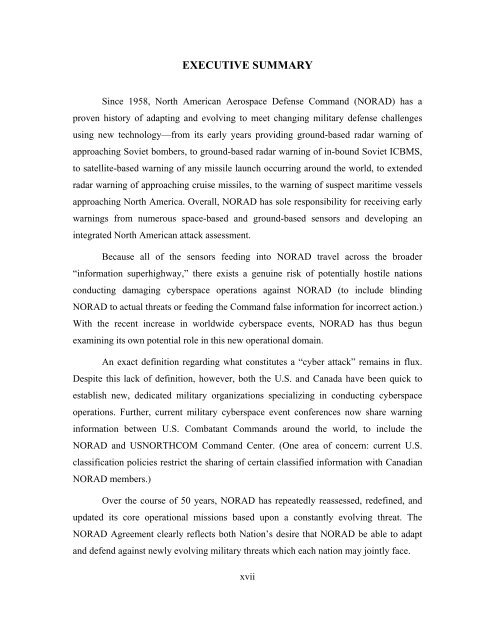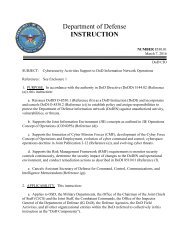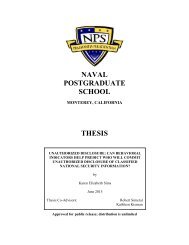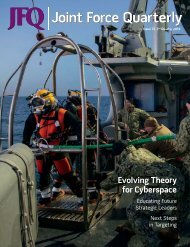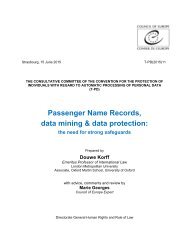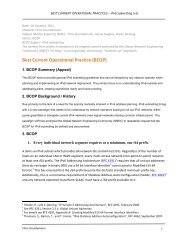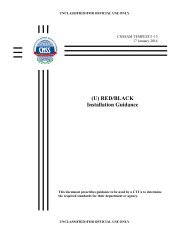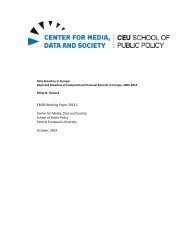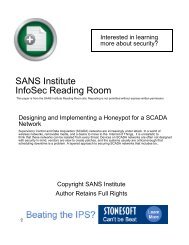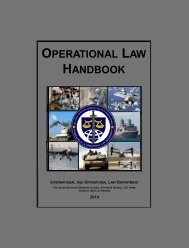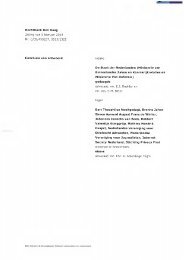SCHOOL THESIS
?view&did=788526
?view&did=788526
Create successful ePaper yourself
Turn your PDF publications into a flip-book with our unique Google optimized e-Paper software.
EXECUTIVE SUMMARY<br />
Since 1958, North American Aerospace Defense Command (NORAD) has a<br />
proven history of adapting and evolving to meet changing military defense challenges<br />
using new technology—from its early years providing ground-based radar warning of<br />
approaching Soviet bombers, to ground-based radar warning of in-bound Soviet ICBMS,<br />
to satellite-based warning of any missile launch occurring around the world, to extended<br />
radar warning of approaching cruise missiles, to the warning of suspect maritime vessels<br />
approaching North America. Overall, NORAD has sole responsibility for receiving early<br />
warnings from numerous space-based and ground-based sensors and developing an<br />
integrated North American attack assessment.<br />
Because all of the sensors feeding into NORAD travel across the broader<br />
“information superhighway,” there exists a genuine risk of potentially hostile nations<br />
conducting damaging cyberspace operations against NORAD (to include blinding<br />
NORAD to actual threats or feeding the Command false information for incorrect action.)<br />
With the recent increase in worldwide cyberspace events, NORAD has thus begun<br />
examining its own potential role in this new operational domain.<br />
An exact definition regarding what constitutes a “cyber attack” remains in flux.<br />
Despite this lack of definition, however, both the U.S. and Canada have been quick to<br />
establish new, dedicated military organizations specializing in conducting cyberspace<br />
operations. Further, current military cyberspace event conferences now share warning<br />
information between U.S. Combatant Commands around the world, to include the<br />
NORAD and USNORTHCOM Command Center. (One area of concern: current U.S.<br />
classification policies restrict the sharing of certain classified information with Canadian<br />
NORAD members.)<br />
Over the course of 50 years, NORAD has repeatedly reassessed, redefined, and<br />
updated its core operational missions based upon a constantly evolving threat. The<br />
NORAD Agreement clearly reflects both Nation’s desire that NORAD be able to adapt<br />
and defend against newly evolving military threats which each nation may jointly face.<br />
xvii


